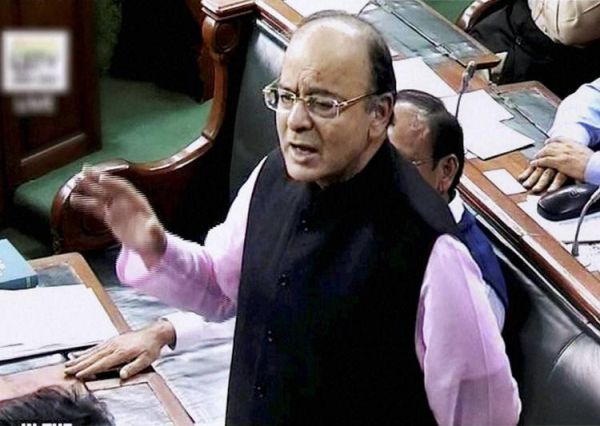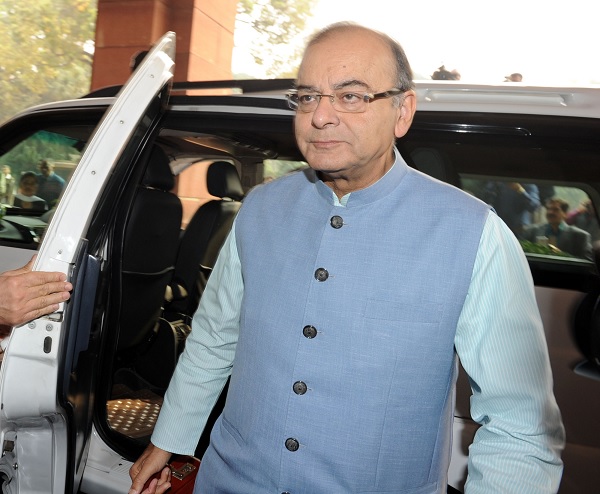
by admin | May 25, 2021 | Corporate, Corporate finance, Corporate Governance, Economy, News, Politics
 By Porisma P. Gogoi,
By Porisma P. Gogoi,
New Delhi : The government’s move to increase expenditure on food processing, infrastructure, healthcare and rural economy will generate more demand for the fast moving consumer goods (FMCG) sector, said industry players.
“The country has been through two muted years of growth after economic reforms like demonetisation and GST (Goods and Services Tax). Hence, from the Union Budget 2018-19, expectation was to see policies and steps to boost growth,” Harsha V. Agarwal, Director, Emami, told IANS.
“Infrastructure, education, healthcare and rural economy are the major beneficiaries from this budget, signalling more job creation and spending power in the hands of the largest population which will automatically help the FMCG sector by generating strong demand,” Agarwal said.
The various measures announced by the government will lead to increase in rural consumption, improve overall rural economy and have a trickling effect on the corporates, according to Sanjana Desai, Head of Business Development, Desai Brothers (Food Division – Mother’s Recipe).
Desai Brothers owns and manages the brand Mother’s Recipe — a food company which makes a vast range of pickles, pastes and ready-to-cook mixes.
“The Union Budget 2018-19 is largely positive for FMCG. As anticipated by the FMCG sector, government’s thrust on boosting the rural economy is welcome,” said Desai.
“Increased allocation under various schemes such as MNERGA (Mahatma Gandhi National Rural Employment Gurantee Act), rural infrastructure and others will not only increase rural income through employment generation by these projects but will also improve connectivity giving a boost to rural/agri businesses,” she added.
In the last full budget just presented by Finance Minster Arun Jaitley before the 2019 general elections, the government announced that it would spend more on agriculture, livelihood and infrastructure in the rural area and increased funds for crop insurance, rural roads, irrigation besides setting higher targets for farm credit.
With total budgetary outlay of Rs 2,01,933 crore for agriculture and rural development, the government has emphasised on development of food processing, dairy and fishery sectors to enhance farmers’ income.
The industry players also appreciated the Finance Minister’s move to reduce the corporate tax rate for all companies with turnover of up to Rs 250 crore, up from Rs 50 crore.
“We welcome government’s move to reduce corporate tax from 30 per cent to 25 per cent for companies with revenue of up to Rs 250 crore. This initiative will give a boost to company revenue and allow businesses like us to invest more in expansion leading to employment generation, which is a primary focus for the government,” said Oliver Mirza, Managing Director and CEO, Dr Oetker India.
Dr Oetker India is a German packaged food company which acquired the Fun Foods brand in 2008.
“This move will also provide a great stimulus to the government’s initiatives like ‘Make in India’ and ‘Startup India’. Tax benefits combined with increased allocation to the food processing sector will give a great impetus to the overall FMCG industry,” Mirza said.
(Porisma P. Gogoi can be contacted at porisma.g@ians.in)
—IANS

by admin | May 25, 2021 | Corporate, Corporate finance, Finance, News

The Union Minister for Finance, Corporate Affairs and Information & Broadcasting, Arun Jaitley arrives at Parliament House to present the General Budget 2016-17, in New Delhi on February 29, 2016.
New Delhi:(IANS) Finance Minister Arun Jaitley on Monday gave relief to small tax payers, nudged the affluent to shell out more while focusing on the rural economy with much higher fiscal outlays, as he presented India’s national budget for 2016-17 in the Lok Sabha.
He also said that people living in rented houses will be eligible for deductions of up to Rs.60,000 now — up from Rs.24,000. He also said the ceiling of tax rebate for people with income up to Rs.500,000 per annum was being raised to Rs.5,000 from the present Rs.2,000.
But for larger tax payers, he said, the income tax surcharge of 12 percent at present was being hiked to 15 percent for incomes exceeding Rs.1 crore per annum. Suitable changes, Jaitley said, will also be made in customs and excise duty rates to push the “Make in India” programme.
“Tax evasion will be countered strongly,” he warned.
Jaitley also said that the fiscal deficit target of 3.9 perecent of GDP for the current fiscal will be met, even as the target for next year has been fixed at 3.5. “Prudence lies in adhering to fiscal targets,” he said.
But in a major departure from the past, where government expenditure could be demarcated between productive and administrative expenses, the finance minister said the classigication of plan and non-plan will be done away with from 2017-18.
The minister began his speech saying that India was a bright spot in the global economy in these difficult times. He later outlined his nine focus areas for this annual budget exercise in which rural development took the top slot.
“I am presenting the budget when the global economy is in crisis,” Jaitley said in his first set of remarks, adding that India, despite the gloom in the world economy, was turning difficulties into opportunities.
He said India’s growth has expanded 7.5 percent, despite slowdown in exports, even as inflation had eased, bringing big relief to the general public. He also said foreign exchange reserves were robust. “Indian growth is at an extraordinary high.”
Jaitley said his budget will look at three pillars in right earnest: A prudent fiscal policy, raising domestic demand and carrying out reforms. He also said that farm, rural sector, infrastructure and social sector will be allotted more money.
“Recapitalization of banks also to be done during next fiscal year,” he said, as much concern have emerged over the quantum of exposure of Indian scheduled banks in terms of gross non-productive assets, re-cast loans and write-offs, which amounts to Rs.9.5 lakh crore.
He said the nine pillars of this year’s budget will be: agriculture, social programmes, rural development, education with skill development, infrastructure, financial reforms, policy reforms in terms of ease of doing business, fiscal discipline and tax reforms.
“A unified agriculture platform to be dedicated to the nation on the birth anniversary of Dr. B.R. Amebdkar,” the finance minister said, amid applause from the benches.
He said the government had targeted agriculture credit of Rs.8.5 lakh crore in 2015-16, which was being enhanced to Rs.9 lakh crore in the next fiscal. He also said that Rs.19,000 crore will be allocated for rural roads development programme.
Overall, Rs.87,765 crore was being allocated for rural development as a whole.
At the same time, Rs.35,984 crore was being allocated for agriculture in the next fiscal. This apart, the outlay under the job guarantee programme was being enhanced to Rs.38,500 crore. These enhanced allocations are capable of transforming villages and towns, Jaitley said.
He said there was also the need to spread digital literacy in rural areas. In addition, Rs.8,500 crore was being allotted towards rural electrification, targeting 100 percent rural electrification by May 1, 2018.
Jaitley also assured that the government intended to double the income of farmers in five years, besides allotting Rs.35,984 crore towards welfare of farmers. The proposals also included universal coverage of cooking gas in the country, with a massive mission towards this aimed at the poor people.
In this regard, he said, the government appreciated the 75 lakh middle class and lower middle class families for willingly giving up cooking gas subsidy.
On health, he said, a new scheme will provide medical cover up to Rs.1 lakh per family,


